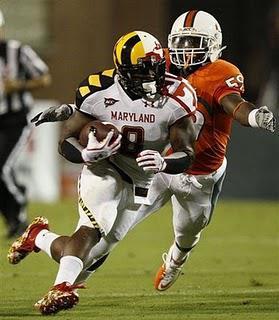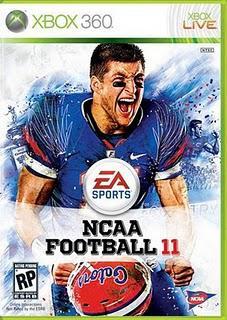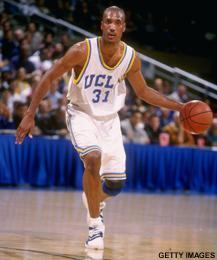 September is always an exciting time in college life. The semester has just started, freshman are getting acclimated to campus life, students (most of them) are getting back into the grove of studying, homework, and testing after a long summer of doing other things. This time is also the start of football season, a highly anticipated event at many colleges, especially the largest state and private universities. In fact college football is such an ingrained part of college life and the greater American culture that autumn Saturdays are synonymous with the sport. Scenes from bucolic campuses, of raucous jam-packed stadiums, and intense on-field competition paint a picture of joyful, if fervent (and a bit over-serious), leisure. But college football, and major college sports in general, are built on some unsettling realities.
September is always an exciting time in college life. The semester has just started, freshman are getting acclimated to campus life, students (most of them) are getting back into the grove of studying, homework, and testing after a long summer of doing other things. This time is also the start of football season, a highly anticipated event at many colleges, especially the largest state and private universities. In fact college football is such an ingrained part of college life and the greater American culture that autumn Saturdays are synonymous with the sport. Scenes from bucolic campuses, of raucous jam-packed stadiums, and intense on-field competition paint a picture of joyful, if fervent (and a bit over-serious), leisure. But college football, and major college sports in general, are built on some unsettling realities.This past week there was an excellent article by Taylor Branch in The Atlantic (which features some of the best writing anywhere) about the inherent hypocrisy and corruption of the National Collegiate Athletic Association - better known by the acronym NCAA. Mr. Branch's lengthy article is worth the read and it explores and explains many of the troubles attached to major college sports in America.
The central concern, unsurprisingly, has to do with money; the fact that college athletics, and especially football and (men's) basketball, are big business, worth nearly $11 billion per year to the nation's colleges and universities. And yet the "student-athlete" sees not one cent of this revenue. There are deep implications to this fact, and it has given rise to a sharply divided debate.
From one perspective, college sports offer athletes a golden opportunity to earn a college degree, for many a free education including tuition, room and board, and books. At many schools this could be worth well over $100,000 over four years (the maximum eligibility period for college athletes). Players get the invaluable experience of working as a team, compete at a high level, travel, and meet people they never would have otherwise. They also get to be a part of an essential element of the college experience, perhaps the central aspect of college life that binds the student body, faculty, and alumni together on a regular basis.
The opposing view sees high-level college athletes as nothing more than unpaid exploited labor. Players are placed under high pressure to compete and win with sport as the primary goal and education as a decidedly secondary focus. Football and basketball players are used to earn their college and the NCAA huge sums of money. And if these players dare to try and profit in any way from their own talents, they risk their eligibility and scholarships.
I've seen the merits of college athletics first hand. I was a student at the University of Maryland when my beloved Terps won the 2002 NCAA Men's Basketball Championship, and felt the way the team's, our team's, accomplishments energized the student body (and even the faculty). It was a great experience and still is a great memory. However, I share many of the concerns regarding the fairness and indeed the appropriateness of major college sports. I offer a few of my thoughts:
- College sports - all college sports - exist only because of the athletes. So do all the revenues. It's undeniably unfair that the players do not share in these revenues. This obviously would never be tolerated by professional athletes, but college athletes are branded as amateurs, which somehow invalidates their rights to share in the profit of their labor. Amateurism is pure fiction. The concept was abandoned long ago in tennis and the Olympics because it's so out-of-touch with the modern world where top athletes earn wages, often very high wages, for their efforts. It has no meaning. College athletes are among the best at what they do. College football and basketball serve as de facto minor leagues for the NFL and NBA (and other professional basketball leagues). Fans are willing to pay to watch. Why shouldn't college athletes get paid their fair share? The answer of course is that the guise of amateurism provides a plausible excuse for athletic departments, college boards, the NCAA, and even coaches to withhold payment from the young men (and women) that make all the money possible.

Tim Tebow won't earn a dime from this game
- It goes further, college athletes can never be compensated for their college efforts. They earn no money from the rights to their name printed on the back of sports jerseys, from video games that feature their likeness, from DVDs that highlight their exploits. The NCAA claims that athletes sign over these rights when they sign their athletic agreements, but how can this be? Can players really forfeit their rights?
- Sadly, the lack of financial remuneration is only one of the ways that college athletes are mistreated. The NCAA, with the acquiescence of its member colleges, mandates that college scholarships can only be awarded one year at a time. Ostensibly this is so a scholarship can be revoked for poor performance (academic or athletic). In reality its so colleges have leverage over players. The one year mandate means that athletes can't shop around for the best deal (say one college offering a four-year scholarship over another's two-year offer). Athletes are also vulnerable to disagreements with coaches and injuries, which can derail a college life long before a degree is earned. The one year scholarship rule does not guarantee an education as the NCAA would suggest; players must follow the rules (no matter how trite), tow the college/coach line, perform, and stay healthy...for four years...to keep the scholarship money flowing.
- And if players do transgress the NCAA's myriad rules (bylaws here), some of them trifling (or picayune to use Branch's perfect word), the NCAA can strip away that student's right to compete. These transgressions can be as minor as selling an autograph or accepting a free lunch from a professional agent. What gives the NCAA this right? The NCAA can end the college career - academic and athletic - of a college player who refuses to play by the NCAA's rules.

Former star Ed O'Bannon is suing the NCAA
- In the end the NCAA acts like a classic bully. Oppressively regulating the activities of young athletes who have no power. If athletes dare to fight back via court action, the NCAA can invoke its restitution rule that allows colleges to be punished for the legal action of students. Among other things, the rule allows the NCAA to curtail a college's number of athletic scholarships, eligibility for post-season play, and television rights. This has the effect of intimidating colleges and suppressing student dissent. It's nothing less than an attack on the due process rights of students. A simple example of the NCAA's bullying rules: if an athlete wants to transfer from one college to another, that athlete must sit out for one year. Why? To discourage player movement from one team to another - an empowering act for players - to the benefit of colleges who don't have to compete for players. However, coaches, who don't fall under NCAA regulations, are not required to sit out any time if they switch from one coaching job to another. Why? Because coaches have the employments rights of any American. The same rights should be applied to student-athletes.
- What is amazing is that even with all the money pouring into athletic departments through television and other media contracts, ticket sales, merchandise sales, and ancillary revenues from things like video game licensing and sales of DVDs, many colleges still charge students an athletic fee as part of their tuition. Think about that. Athletic costs are so high, that the huge revenues can't cover the cost, and the average student, athletic fan or not, must cover the shortfall. College athletics should be bonus of college life, not a priority. If our colleges have reached the point where the needs of college sports affect the wallets of the general student body, we've reached the point where colleges have lost sight of priorities. Athletic success, no matter how high profile or spirit-building, must be secondary to the college's academic needs.
As detailed in Branch's article, numerous challenges in the form of lawsuits and growing public pressure are challenging the NCAA's power. Let's hope these challenges lead to a complete collapse of the NCAA's self-serving facade.
Sports are wonderful, one of my very favorite things, and college athletics are an enhancing feature of college life and American culture. But as a society we must see through the hollow platitudes of the NCAA and its member schools to the true nature of college sports. They're business and big money. Like all businesses, everyone involved, including the student labor, deserve fair compensation and basic rights.

